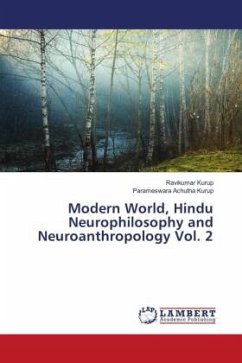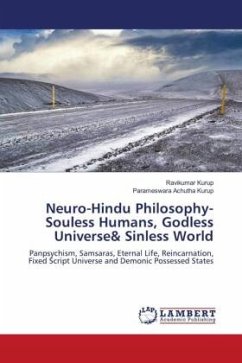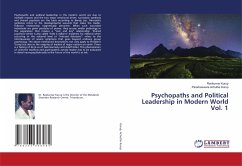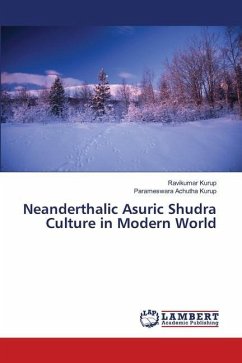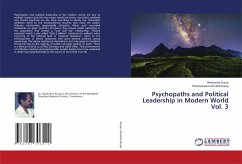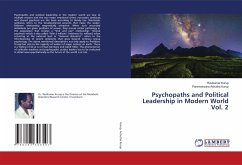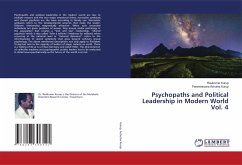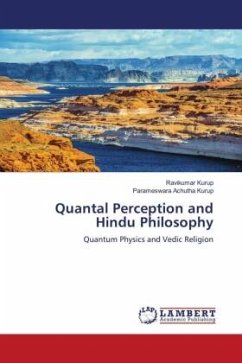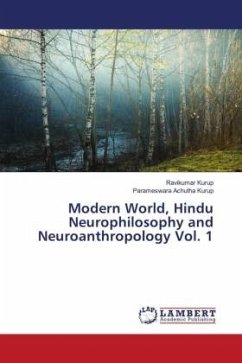
Modern World, Hindu Neurophilosophy and Neuroanthropology Vol. 1
Versandkostenfrei!
Versandfertig in 6-10 Tagen
76,99 €
inkl. MwSt.

PAYBACK Punkte
38 °P sammeln!
Pagan religions believing in panpsychism belong to the Neanderthalic Dravidians which originated in the Lemurian landmass which included peninsular India and Antarctica. The tsunamis in the Indian ocean broke up the Lemurian continent and Manu led his people to the Eurasian landmass and established colonies in Harappa, Mohenjo-Daro, Sumeria, Persia and Egypt. The Abrahmincal religions arose out of Indian civilization. The defeated neanderthalic asuric Kauravas under the leadership of the teacher Shukracharya developed a monotheistic Shiva-centered religion in Middle-East and West Asia. The asu...
Pagan religions believing in panpsychism belong to the Neanderthalic Dravidians which originated in the Lemurian landmass which included peninsular India and Antarctica. The tsunamis in the Indian ocean broke up the Lemurian continent and Manu led his people to the Eurasian landmass and established colonies in Harappa, Mohenjo-Daro, Sumeria, Persia and Egypt. The Abrahmincal religions arose out of Indian civilization. The defeated neanderthalic asuric Kauravas under the leadership of the teacher Shukracharya developed a monotheistic Shiva-centered religion in Middle-East and West Asia. The asuric Kauravas later evolved into Jews, Muslims and Semites. Panpsychism considers the universe as conscious and consciousness as an intrinsic feature of all subatomic particles, living things and non-living things. This gives continuity between the quantal world of existence and macroscopic world. The quantal superpositions collapse or undergo decoherance due to the observation of universal protoconsciousness field. The universal protoconsciousness field can be considered as gravity and antigravity. Matter is a creation of consciousness. This forms the basis of Hindu Neurophilosophy.



